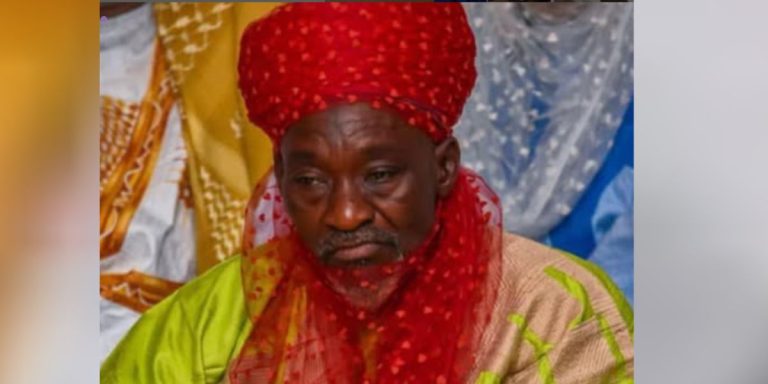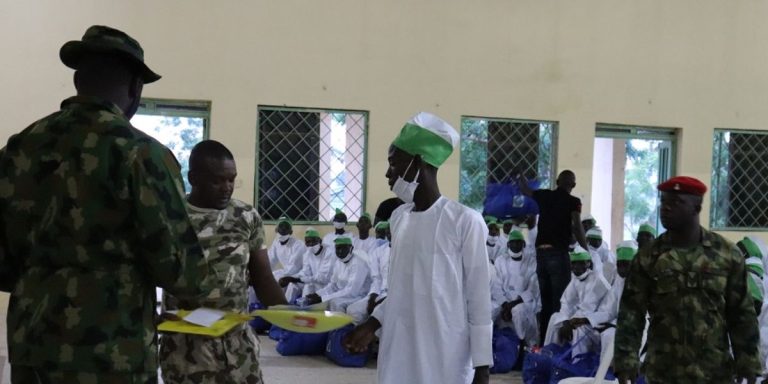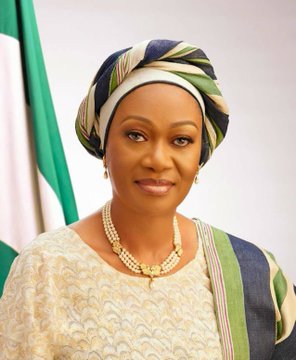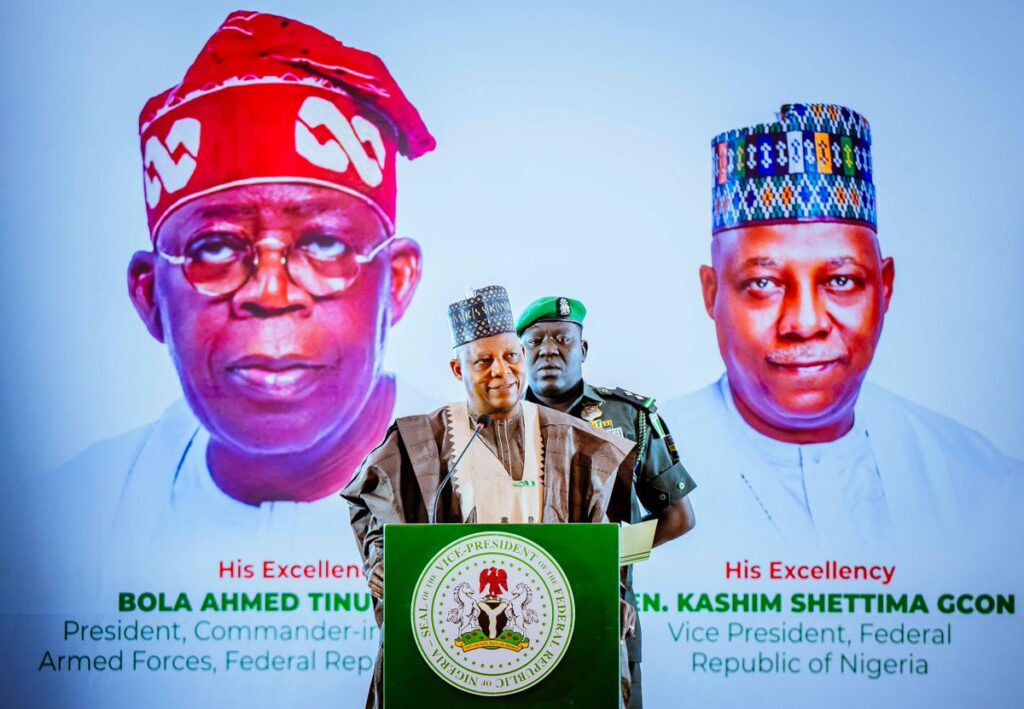Trump blames diversity hiring for Washington DC Plane crash

President Donald Trump has linked the fatal mid-air collision between a military helicopter and a passenger jet in Washington, D.C., to what he called a diversity hiring spree in the aviation industry. The crash, which occurred near Ronald Reagan National Airport on Wednesday evening, resulted in 67 deaths, with no survivors. During a press briefing, Trump criticized the Biden administration, alleging that FAA diversity hiring policies had compromised safety standards. He claimed that the agency had reduced qualification requirements in an effort to increase diversity, hiring employees with “severe intellectual and psychiatric disabilities” as air traffic controllers. “I put safety first,” Trump stated. “Obama, Biden, and the Democrats put politics ahead of policy, and this was the lowest level of decision-making we’ve seen.” The UH-60 Black Hawk helicopter collided with American Airlines Flight 5342, which was on final approach to Runway 33 at Reagan National Airport around 8:47 PM (local time). The passenger jet, which had departed from Wichita, Kansas, and the military aircraft both plunged into the icy Potomac River, killing all 67 people on board. Recovery teams have since been working to retrieve the bodies of the victims, with no survivors found. A preliminary FAA report obtained by The New York Times indicated that staffing at the air traffic control tower was “not normal” at the time of the crash. The report revealed that the controller responsible for helicopters in the airport’s vicinity was also handling landing and departing planes, a task typically assigned to two separate controllers. This revelation has raised questions about whether controller workload and air traffic mismanagement played a role in the tragedy. When asked why he linked the crash to diversity hiring, Trump responded: “Because I have common sense, and unfortunately, a lot of people don’t.” The crash claimed the lives of all crew members and passengers on both aircraft. Among the victims were highly trained pilots and military personnel with years of aviation experience. American Airlines Flight 5342 was piloted by Captain Jonathan Campos, 34, a seasoned pilot born in New York and raised in Florida. Campos was certified as an instructor in 2017 and became a commercial airline pilot in 2018 after attending the Epic Flight Academy. His first officer was Samuel Lilley, 29, a Savannah, Georgia native, who had recently gotten engaged and was just months away from a promotion to captain. His father, Timothy Lilley, a former military pilot, confirmed his background and expressed deep grief over his loss. The U.S. Army Black Hawk Helicopter was piloted by Andrew Eaves, a U.S. Army pilot with extensive military flight experience. Crew Chief Ryan O’Hara, a Georgia native, was also among the victims. Authorities have not publicly disclosed specific details regarding the ethnic or diversity backgrounds of the pilots involved. Trump cited an FAA special emphasis recruitment program, which promoted the hiring of individuals with hearing and vision impairments, missing extremities, paralysis, epilepsy, intellectual disabilities, psychiatric conditions, and dwarfism. Reports indicate that these guidelines were updated in March 2022 under the Biden administration. Last week, Trump signed an executive order banning Diversity, Equity, and Inclusion (DEI) policies and ordering a return to merit-based hiring within the FAA. Trump announced that a “systematic and comprehensive investigation” into the crash would be conducted by the FAA, the National Transportation Safety Board (NTSB), and the U.S. military. He also suggested that pilot error from the military helicopter may have played a role in the collision, stating that the Black Hawk had done “the opposite of what it was told” and questioning why both aircraft were at the same altitude. He praised the American Airlines pilot, saying they had followed all protocols. Rescue teams continued their search and recovery operations on Thursday, with bodies being pulled from the freezing Potomac River. At least 28 bodies have been recovered so far, with emergency responders working to retrieve all 67 victims. Among those killed were U.S. and Russian figure skaters who had participated in a skating competition in Wichita. The FAA and air traffic control management have come under scrutiny following revelations that staffing shortages and possible mismanagement may have contributed to the crash. The internal FAA report noted that the controller overseeing helicopters was also handling runway operations, an unusual workload for a single person. There was no FAA administrator at the time of the crash, as Mike Whitaker had resigned on Trump’s inauguration day after just over a year in office. On Thursday, Trump appointed Chris Rocheleau, a U.S. Air Force veteran with over 20 years of experience in the FAA, to fill the role. Trump also took aim at Pete Buttigieg, the former U.S. Secretary of Transportation, blaming him for mismanaging the FAA and prioritizing diversity over safety. “Pete Buttigieg was a disaster. He ran the FAA right into the ground with his diversity agenda,” Trump stated. In response, Buttigieg called Trump’s comments “despicable”, accusing him of spreading misinformation. “President Trump now oversees both the military and the FAA. One of his first acts was to fire and suspend key personnel who helped keep our skies safe,” Buttigieg said. According to air traffic control records, American Airlines Flight 5342 was originally cleared to land on Runway 1 at Reagan National Airport. However, moments before the crash, controllers instructed the flight to switch to Runway 33, where the collision occurred. Investigators are analyzing whether this last-minute runway change played a role in the incident. Flights at Reagan National Airport resumed Thursday morning, with the first departures and arrivals occurring just after 11:00 AM (local time). No black boxes have been recovered yet, according to officials, making the investigation into the exact cause of the crash more difficult.
Trump’s Foreign Aid Freeze Causes Fear of H.I.V. Resurgence in Africa
Patients and health care advocates said the abrupt decision to halt U.S. funding for a lifesaving H.I.V. program led to widespread confusion. The backtracking didn’t help. As he does every three months, Sibusiso traveled on Wednesday morning to a clinic in the capital of Eswatini, a tiny southern African nation, to get a refill of the H.I.V. medication he needs to save his life. When he arrived, the door was locked and about 20 other patients stood outside, baffled that the clinic was closed. Sibusiso, 39 and unemployed, had heard rumors that President Trump was pulling funding for the program that supported his treatment. Now, though, he learned the reality: The Trump administration had ordered a halt to the President’s Emergency Plan for AIDS Relief, or PEPFAR, one of America’s most consequential aid programs in Africa. The abrupt pause of a $6.5 billion program established by former President George W. Bush and credited with saving the lives of tens of millions of people sent patients, clinicians and public health advocates across Africa into a panic. Many feared a return to some of the darkest days on the continent, when H.I.V. spread rapidly and a diagnosis was akin to a death sentence. As Sibusiso stood outside the clinic, he feared he could be next. He had taken the last of his antiretroviral medication that morning. And even though the Trump administration had backtracked, suddenly announcing on Tuesday that lifesaving medications and treatments could continue to be distributed, the clinic remained shuttered in the confusion. Sibusiso, standing outside, had no idea where or when he could get more medicine. “I’m now thinking of dying,” said Sibusiso, who requested that only his first name be used to protect his privacy. “What am I going to do without this treatment?” The Trump administration has said that foreign assistance programs will be paused for three months as it reviews how money is being spent. If the administration decides to end PEPFAR, it could lead to 600,000 deaths over the next decade in South Africa alone, where the program has its largest number of beneficiaries, according to a study. “The next 90 days are looking so dystopian,” said Nozizwe Ntsesang, the chief executive of a leading gay rights advocacy group in Botswana. Across South Africa and other countries in the region, fear and uncertainty are palpable. Some African leaders had shared optimism and excitement about a second Trump term. But now, one of his first moves appeared to put lives at risk. “I’m scared,” said a 19-year-old South African college student who was born with H.I.V. “People will die. It’s going back to the ’90s where people did not have enough medication to treat the disease.” The student, who also requested anonymity to protect her privacy, said the clinic that she goes to in Johannesburg gave her a three-month supply of her antiretroviral medication on Wednesday instead of the usual six months. Officials explained that they wanted to reserve some stock in case other clinics ran short, she said. PEPFAR does not provide medication for the South African health system, but it does employ around 13,000 medical professionals, from doctors to community health workers, who are responsible for ensuring that people are tested and seek proper treatment. Virtually all of those employees were ordered to stop working after the Trump administration froze foreign aid programs, according to health care advocates. The staff shortages, health workers and rights groups said, led to much larger crowds at public clinics in South Africa, where roughly eight million people are living with H.I.V. and 5.7 million receive treatment. Amid the chaos of the freeze and the Trump administration’s backpedaling, many clinics remained shuttered on Wednesday, with medical workers unsure about the new rules and patients frantic to secure their medication. Some patients have been forced to wait 10 hours for treatment, advocates said. There were also fears that, without counselors to talk to, some patients, especially those newly diagnosed with H.I.V., would not administer their treatments properly or seek help in the future. “The abrupt stop is not responsible,” said Solange Baptiste, the executive director of the International Treatment Preparedness Coalition, an organization that works to improve access to treatment for people with H.I.V. “Lives are at risk when you do that.” South Africa is in a better position than many other African countries. The government procures most of its H.I.V. drugs directly and relies on PEPFAR for only about 17 percent of its overall H.I.V. treatment budget. Neighboring Botswana, which has received nearly $72 million in aid from PEPFAR since 2003, also buys its own treatment medication, but the work and funding stoppage has weighed heavily on local organizations. Stanley Monageng said he cried when he learned about the Trump administration’s order. Mr. Monageng, 78, has been running an organization in Molepolole, in southern Botswana, since 2005. It provides support for children with H.I.V. and relies mostly on PEPFAR funding, he said. Mr. Monageng said he was worried all week that he would not be allowed to provide antiretroviral medication to the dozens of children, many of them orphaned, who rely on his organization for help. Mr. Monageng himself has been living with H.I.V. for 25 years and says he has personally benefited from the PEPFAR program. “I asked myself, ‘How are these orphans going to survive? How am I going to help them?’” he said on Wednesday from the three-bedroom house that he uses for the center. “I’ve been surviving all these years because of America.” At HealthPlus 4 Men, the clinic that was closed in Eswatini on Wednesday, officials encouraged anxious patients to go to a public hospital to seek medication. But most patients were uncomfortable with that option. HealthPlus primarily treats gay men, a population that has been historically stigmatized in Eswatini. Many of its patients fear going to government-run facilities, where they worry they will face discrimination. Public hospitals also often provide prescriptions that many patients can’t afford to fill, said Sibusiso Maziya, the executive director of
US plane crash: No survivors found, 30 bodies recovered

About 30 bodies have been removed from the wreckage caused by a mid-air crash between a passenger plane and a helicopter in Washington. The American Airlines regional jetliner was carrying 60 passengers and four crew when it collided with a US Army Black Hawk helicopter near Reagan Washington National Airport, plunging the aircraft into the Potomac River, Press TV reported. Washington, DC Fire and EMS Chief, John Donnelly said at a press conference on Thursday that a huge rescue operation had been launched, but no survivors are expected from the crash. He said first responders worked throughout the night to recover bodies and search for survivors despite the tough working conditions due to the plane falling into the Potomac River. However, till now the rescue workers had not found any survivors and were able to only recover 30 dead bodies, one of which was from the helicopter. He said the responders’ operation moved from “rescue” to “recovery” as it became clear that ”no one onboard the plane was likely to survive the crash.” “At this point, we don’t believe there are any survivors from this accident.” News agencies reported that a renowned Russian figure skating couple, who worked as coaches in the US and were traveling with a group of young skaters, had been aboard the American Airlines plane. The US authorities said the plane broke into three pieces and fell into about 7ft of water in the river alongside the helicopter. Trump furious, says US in mourning In his reaction, President Donald Trump said the mid-air collision could have been prevented. Speculating the cause of the crash, he said, “The helicopter was going straight at the airplane for an extended period of time.” According to him, the passenger aeroplane had been on a perfect and routine line of approach to the airport before the crash. “It is a CLEAR NIGHT, the lights on the plane were blazing, why didn’t the helicopter go up or down, or turn? Why didn’t the control tower tell the helicopter what to do instead of asking if they saw the plane? This is a bad situation that looks like it should have been prevented. NOT GOOD!!!” Trump posted on Truth Social early Thursday morning. President Trump addressing the nation Thursday afternoon AFP However, American Airlines’ chief executive, Robert Eisen, said the cause of the collision is still unknown. “At this point we do not know why the military aircraft came into the path of the PSA aircraft,” he said, adding that the pilot was “experienced”, with six years at the airline. The Ronald Reagan airport was closed following the crash. Meanwhile, experts say numerous safety defects leading to crashes in American-made airliners indicate a decline in production standards in US airplane manufacturing plants. Boeing, the flagship American manufacturer of commercial airliners, posted a fourth-quarter loss of $3.8 billion on Tuesday amid continued machinists’ strikes and other problems at its plants. Whistle-blowers’ mysterious deaths Two Boeing whistle-blowers, who warned about manufacturing defects in its planes, have been found dead in the US after making their revelations. John Barnett and Joshua Dean both died in mysterious conditions.
Kaduna monarch slumps, dies during public event

Sarkin Yakin Zazzau, Alhaji Rilwan Yahaya Pate, a district head in the Zazzau emirate council of Kaduna State, is dead. NEW DAILY PRIME learnt that Pate, the Sarkin Yakin Zazzau, Pate, who slumped while attending an occasion along with the Emir of Zazzau, Mallam Ahmed Nuhu Bamalli, later died at the Gambo Sawaba General Hospital, Kofar gayan, Zaria. Abdullahi Aliyu Kwarbai, the Media and Publicity officer of the Zazzau confirmed the sad incident in a statement on Thursday night. The statement read, “It is with great sadness that the Zazzau Emirate Council announces the passing of Sarkin Yakin Zazzau Alhaji Rilwanu Yahaya Pate, a Council Member of the Emirate. –“Alhaji Rilwanu Yahaya, who also served as Councillor in charge of Health Related Matters, passed away while attending a program alongside His Highness, the Emir of Zazzau, Malam Ahmed Nuhu Bamalli, CFR, at Hajiya Gambo Sawaba General Hospital, Kofan Gayan, Zaria this morning.” The statement added. The remains of the late Sarkin Yakin Zazzau, Alhaji Rilwan Yahaya Pate has since been buried at Rimin Dodo later in the evening, Thursday. In his condolence message, the Emir of Zazzau, Mallam Ahmed Nuhu Bamalli described the death as “the will of Allah” stating that “death is inevitable and can come whenever Allah destined.” The Emir who consoled the family of the deceased described the late Sarkin Yakin Zazzau as hardworking, dedicated and very religious whose vacuum will not easily be replaced. He prayed for the soul to have an eternal life rest.
5,000 repentant Boko Haram fighters reunite with families

About 5,000 repentant Boko Haram fighters have reunited with their families. Disclosing this at the second-day session of the Lake Chad Basin Governors’ Forum on Thursday, Head of Preventing and Countering Violent Extremism (PCVE), Amb. Mairo Musa Abbas stated that none of the former combatants returned to the battleground after six months of the deradicalisation programme. Mairo, who spoke at the Third Penal with the theme, “Managing Boko Haram Exits and Demobilisation of Armed Groups,” said harmonised strategy would help the governors of Lake Chad region to address their common issues. She said deradicalisation, rehabilitation and reintegration programme for ex-Boko Haram fighters, known as Operation Safe Corridor, had reintegrated over 5,000 repented Boko Haram into the society. “Under Operation Safe Corridor programme, we have deradicalised over 5,000 ex-combatants of Boko Haram and reunited them with their families. “They are using the skills they have acquired in the six months of deradicalisation programme in the camp to sustain themselves within the communities. “Our collaborators from the National Orientation Agency (NOA) are within 774 local governments in Nigeria and traditional and religious leaders within the community they have monitoring mechanism where are able to monitor this mechanism and see their progress after the reintegration within the community,” she said. Amb. Abbas added that the “Borno Model” a state-led strategy, which aimed at reintegrating individuals who left extremist groups like Boko Haram, had complemented the efforts of the federal government to promote peace in the country. “We always said ‘Borno Model’ is a model of necessity but we have recorded a lot of success with the Model because many repented fighters, have been reunited with families,” she added. She, however, called on the governors in the Lake Chad region and stakeholders to harmonise their strategy to ensure that they work on the same level.
Boy Alinco urges parents to choose traditional names for children

Nigerian comic actor Bayo Bankole, widely known as Boy Alinco, has urged parents to embrace traditional names to preserve cultural heritage. Speaking on the Teju Babyface Podcast, he emphasized the significance of indigenous names in maintaining identity and history. Encouraging parents to choose Yoruba names Bankole expressed concern over the growing trend of African parents choosing foreign names for their children. He encouraged them to prioritize traditional Yoruba names like Oluwaseun, Oluwapamilerinayo, and Oluwasoromidayo instead of popular Western names such as Jayden or Biden. According to him, African names carry deep meanings and cultural significance, which should not be discarded. He warned that abandoning indigenous names could lead to a loss of identity. “Names are more than just words. They tell a story about our origins, our values, and our heritage. When we replace them with foreign names, we erase a part of who we are,” he said. Debunking pronunciation concerns Many parents worry that African names may be difficult for non-Africans to pronounce. Bankole dismissed this argument, stating that people around the world pronounce complex names from other cultures without hesitation. He pointed out that Dutch, Russian, and Indian names, some of which are lengthy and unfamiliar, are commonly used in schools and workplaces. “If schools can pronounce names from other countries, why should ours be an exception?” he questioned. “Indian names are long, yet Indians hold on to them proudly. The same goes for Russians and the Dutch. Why should we feel the need to change our names?” The importance of names in cultural identity Alinco highlighted the struggles many African Americans face in tracing their ancestral roots. He compared this to Indian and Jewish communities, who maintain strong ties to their heritage through their names. Alinco noted that Jewish surnames often link individuals to their ancestry, while Indian names like Patel represent entire communities and retain their historical significance. “Our names connect us to our past,” he explained. “African Americans often struggle to trace their lineage because their names were changed. But look at the Jews and Indians. Their names are their identity, and they carry them with pride.” A call to preserve tradition For Bankole, keeping traditional names is not just about preserving the past; it is about securing the future. He stressed that names serve as a bridge between generations and ensure that cultural heritage remains intact. “If my name is the reason my children, grandchildren, and great-grandchildren can trace their roots back home, then I consider it a blessing,” Alinco said. “Our names should not disappear. They should live on, just as our culture does.” Conclusion Bankole’s passionate plea highlights the importance of names in preserving cultural identity. Alinco encourages parents to rethink their choices and embrace the beauty of indigenous names. By doing so, he believes they will protect their heritage and ensure that future generations remain connected to their roots. Read Also: Celebrity marriages not benchmark for successful relationship — Nasboi
Headies Awards return to Nigeria for 2025 ceremony

The Headies, Nigeria’s top music awards, will return to its roots in 2025 with two separate editions in the same year, organizers confirm. This announcement was made through a video shared on The Headies’ X page by Ayo Animashuan, the founder of the prestigious award. 17th edition scheduled for April 2025 In the video, Animashuan revealed that the 17th edition of The Headies would be held on April 5, 2025. This ceremony will honour outstanding achievements in music for the year 2024. He also confirmed that the nominations for this event will be announced on February 12, 2025, adding excitement for music fans eager to see which artists will be in the running for the coveted awards. Postponement of the 17th edition The 17th edition of The Headies was initially planned for 2024 but was postponed for various reasons. Animashuan explained, “This award, which is happening in April, was meant to take place last year. However, due to unforeseen circumstances, it didn’t happen. We did not want to miss a calendar year, so we decided to host the event in April.” The 18th edition in December 2025 Looking ahead, the 18th edition will take place in December 2025. This event will celebrate the best of Nigerian music from both 2024 and 2025, bringing together the highlights of two years. Animashuan also mentioned that the December edition would be in line with the popular “Detty December” tradition, a festive period that attracts both local and international attention. A legacy of excellence in Nigerian music The Headies has grown to become a symbol of excellence in the Nigerian music industry. Established in 2006, the award recognizes outstanding achievements across various categories, from artist of the year to best producer. Its mission has always been to spotlight the talent and creativity driving the Nigerian music scene. The first edition and early success The very first edition of The Headies was held at the Shell Hall of the MUSON Center in Onikan, Lagos. Hosted by Darry Art Alade, the inaugural event saw several notable artists take home awards, including Don Jazzy, P-Square, Jude Okoye, Mode 9, DJ Jimmy Jatt, Keke Ogungbe, and Dayo. These pioneers laid the groundwork for what has since become a global event, showcasing the best of Nigerian music to audiences worldwide. Global expansion with the 16th edition In recent years, The Headies expanded its reach internationally. The 16th edition, held in 2023, marked a significant milestone in the history of the awards. It took place at the Cobb Energy Performing Arts Center in Atlanta, Georgia, on September 3. The show, which attracted a global audience, saw Rema and Burna Boy emerge as the biggest winners, each taking home three awards. Other prominent winners that night included Wizkid, Davido, Ayra Starr, Asake, and Omah Lay, further solidifying their places as top figures in the global music scene. Honouring legends: Angelique Kidjo’s induction The 16th edition also featured a historic moment—the induction of Angelique Kidjo into The Headies Hall of Fame. Kidjo, a legendary African musician, was honoured for her contributions to the global music industry and her role in elevating African music on the world stage. Return to Nigeria for the 17th edition In February 2024, the organizers confirmed that the 17th edition of The Headies would return to Nigeria. This decision follows the two consecutive years of hosting the event in the United States, in 2022 and 2023. The return to Nigeria is expected to generate even more excitement and anticipation, as fans eagerly await the recognition of local talent that has dominated the music scene over the past year. The future of the Headies The Headies continues to play an essential role in shaping the future of Nigerian music, providing a platform for emerging artists to gain recognition while celebrating the achievements of established stars. With the upcoming editions set to highlight the best in music from 2024 and 2025, The Headies remains a vital event on the African music calendar, fostering both national pride and global recognition for Nigeria’s thriving music industry. Anticipation builds for 2025 As the event draws closer, the anticipation surrounding The Headies will only continue to grow. Fans, artists, and industry professionals alike will be eager to see who will take home the prestigious awards in April and December. Read Also: Trevor Noah to host 2025 Grammy Awards for fifth time
Oluremi Tinubu donates N350m for movie promoting Kwara’s culture

President Bola Tinubu‘s wife, Oluremi, has made a significant donation of N350 million for the production of a movie aimed at promoting the rich culture and traditions of Kwara State. The First Lady of Nigeria made the donation during her three-day working visit to Ilorin, the state capital, where she expressed excitement over the world-class facilities at the Sugar Factory Film Studio and the warm reception from the people of Kwara. Mrs Tinubu, who landed in Ilorin on Tuesday, took the opportunity to commission several key legacy projects initiated by Governor AbdulRahman AbdulRazaq. READ ALSO: Shettima launches project #SheIsIncluded to bridge gender gaps These include two monumental flyovers, named after the Emir of Ilorin, Ibrahim Kolapo Sulu-Gambari, and the late General Tunde Idiagbon. During her visit, Mrs Tinubu also toured other notable projects by the state government, such as the Innovation Hub, Visual Arts Centre, Garment Factory, and the Sugar Factory Film Studio. It was at the Sugar Factory Film Studio where she announced her N350 million donation to fund the production of a film that would showcase Kwara’s cultural heritage to a global audience. Her donation has been widely praised by the Kwara State Government and citizens alike, who see it as a powerful step toward elevating the state’s creative industry. READ ALSO: Oluremi Tinubu distributes Rice to Women in Anambra State The state government expressed its appreciation, noting that this contribution will play a key role in promoting the state’s traditions and arts, with hopes of making a significant impact in Nigeria’s entertainment sector. The gesture also underscored the First Lady’s commitment to supporting Kwara’s growth and development. Observers believe that her efforts will help position Kwara as a major player in the country’s cultural and creative landscape.
Seun Kuti criticises crypto market after sister’s N50m loss

Nigerian musician Seun Kuti has launched a scathing attack on the cryptocurrency market, calling it a “scam” that preys on the vulnerable. In a viral video, he accused crypto promoters of exploiting the poor while enriching the wealthy. Kuti shared a personal story to back his claims. He revealed that his sister lost over N50 million in a cryptocurrency investment. Her experience, he argued, proves that crypto is nothing more than a tool for financial deception. “Crypto is a wealth transfer to the rich” The outspoken artist did not hold back. He described crypto as a fraudulent scheme that benefits the rich while draining the pockets of the less fortunate. He compared it to gambling, stating that both industries operate on the same principle—taking money from the poor and handing it to the wealthy. “Crypto is a lie,” Kuti declared in his video. “You people are criminals trying to steal from poor people. It’s nothing but a wealth transfer from the poorest to the richest, just like gambling.” He went on to call out crypto promoters, accusing them of deliberately misleading the public. According to him, they hype digital currencies to lure in unsuspecting investors, only for these individuals to suffer devastating losses. Harsh words for crypto promoters Kuti’s criticism extended to those who actively promote cryptocurrency. He accused them of being complicit in a grand financial scheme designed to strip the poor of their hard-earned money. “You all promote it, you push it, but it’s all about wealth transfer,” he said. “You’re all part of this plan to shift wealth from the poor to the pockets of the rich.” His words reflect a growing skepticism about digital currencies, especially in regions where many people have suffered losses due to scams and volatile markets. A broader debate on crypto Kuti’s remarks add to the ongoing debate about cryptocurrency. Supporters argue that digital currencies provide financial freedom and investment opportunities. However, critics, including Kuti, believe the system favors the rich while exposing ordinary people to high risks. His comments have sparked mixed reactions online. Some agreed, sharing their own bad experiences with crypto investments. Others defended digital currencies, saying they offer opportunities when used wisely. While crypto remains a controversial topic, one thing is clear—Seun Kuti is not afraid to speak his mind. His words have reignited discussions about the risks and ethics of cryptocurrency, especially in Nigeria, where many have fallen victim to scams. Read Also: Seun Kuti berates Tinubu for removing fuel subsidySeun Kuti: I’m against colonialism, not European people
Shettima launches project #SheIsIncluded to bridge gender gaps

Vice President Kashim Shettima has reaffirmed Nigeria’s commitment to gender equality, declaring that women will lead Africa’s projected $29 trillion economic transformation. He made this statement while launching Project #SheIsIncluded during the opening of the 2025 Gender Inclusion Conference in Abuja on Thursday. The initiative aims to bridge gender gaps in finance and the economy, further emphasizing Nigeria’s dedication to achieving Sustainable Development Goal 5: gender equality and the empowerment of all women and girls. The conference, themed “Breaking Barriers, Building Resilience for Sustainable Women’s Economic and Financial Inclusion,” follows the 2024 Aso Accord for Economic and Financial Inclusion, reinforcing Nigeria’s broader development agenda. “We cannot build the Nigeria or Africa we envision without fully integrating women into our economic systems. Women are not just participants; they are leaders, innovators, and the bedrock of sustainable development,” Shettima stated. READ.ALSO: Shettima inaugurates National Road Safety Advisory Council Project #SheIsIncluded will focus on four key pillars: education and financial literacy, maternal healthcare, gender-sensitive policies, and expanded economic opportunities for women. The initiative will span all 774 local government areas across Nigeria, ensuring that no woman is left behind. “This is not a cosmetic performance to placate progressives; it is a fundamental pillar of our national development agenda,” Shettima emphasised. The project will be led by the Presidential Committee on Economic and Financial Inclusion in collaboration with the Ministry of Women’s Affairs. Shettima urged both public and private sector stakeholders to use the conference as a platform for outlining actionable steps towards gender inclusion. Chief Justice of Nigeria, Justice Kudirat Kekere-Ekun, underscored the importance of gender inclusion in sustainable development, emphasising its role in addressing poverty and fostering economic growth. She affirmed that the judiciary would collaborate with stakeholders to protect women’s rights, ensuring they have access to economic resources and property ownership. In a recorded message, UN Deputy Secretary-General, Amina Mohammed celebrated the conference as a significant milestone in Nigeria’s journey towards gender inclusion, urging global investments in women’s empowerment. She stressed that empowering women leads to prosperous communities and growing economies. READ ALSO: Sanwo-Olu reaffirms commitment to strengthening grassroots governance Senator Ibrahim Hadejia, Deputy Chief of Staff to the President, praised Shettima’s leadership in promoting inclusive growth, noting that the conference would serve as a model for gender equity in Nigeria. Similarly, Hajiya Sulaiman Ibrahim, Minister of Women Affairs, highlighted the conference as an opportunity to strengthen frameworks for dismantling barriers to women’s empowerment. Governors from various states, including Uba Sani of Kaduna, Umar Namadi of Jigawa, and Monday Okpebholo of Edo, voiced their support for gender inclusion policies at the state level. They outlined ongoing programs to support women in agriculture, commerce, and other sectors. Technical Adviser to the President on Economic and Financial Inclusion, Nurudeen Zauro, described the conference as a platform for aligning goals and creating actionable plans to foster financial inclusion. Industry leaders, including Tosin Eniolorunda, Founder of Moniepoint Microfinance Bank, and Oliver Alawuba, CEO of UBA Group, commended the administration’s focus on gender inclusion, stressing its economic importance. Alawuba emphasised that empowering women is key to unlocking the full potential of society and the economy. The event also saw participation from key figures such as Kashifu Inuwa Abdullahi, CEO of the National Information Technology Development Agency, as well as first ladies and CEOs from various financial institutions.



